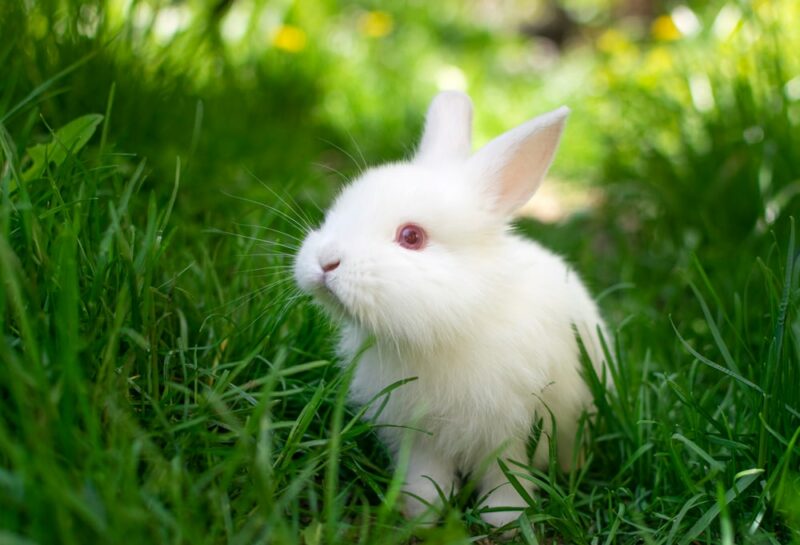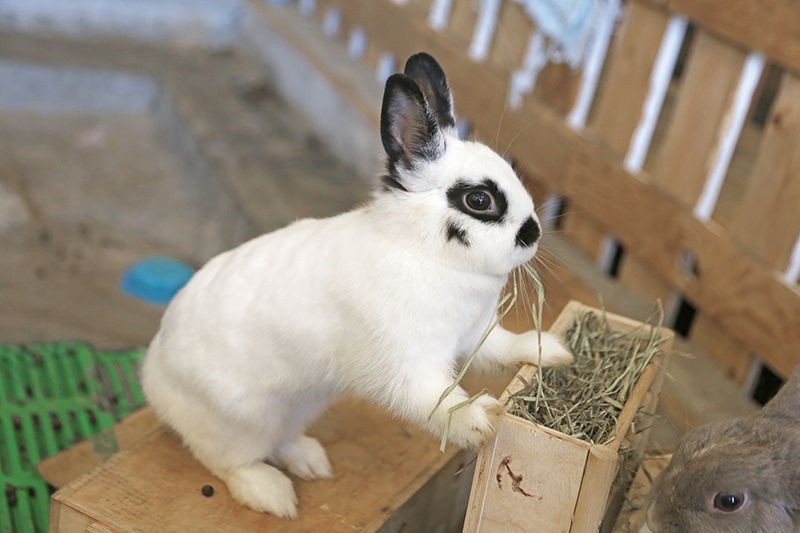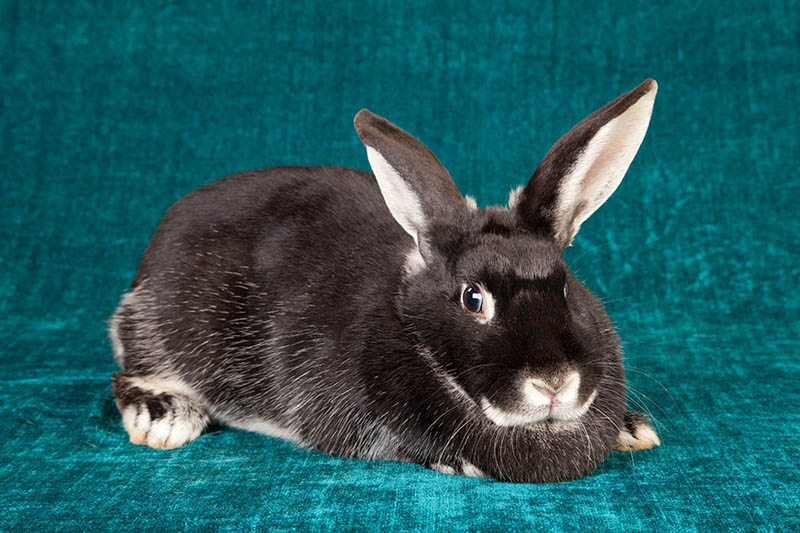10 Pet Rabbit Sounds & Their Meaning (With Videos)

Updated on

Like most mammals, rabbits have a unique way of communicating their feelings, thoughts, and emotions. If you’ve interacted with them long enough, you start to realize they communicate through body language, noises, and gestures. And once you learn how to decode the noises being produced, you’ll never have a hard time trying to figure out whether they are happy, sad, hungry, or sick.
It’s important for rabbit owners to take time to learn these sounds and what they mean because it’s a great way to provide better care to their pets.
The 10 Sounds Rabbits Make
1. Wheezing
“Wheezing” is the sound generated by someone who’s experiencing trouble breathing in a normal way. But this sound isn’t just restricted to humans, as other animals have exhibited countless times that they are also able to produce such noises. Sometimes, the wheeze sounds more like a snore. It might be accompanied by labored breathing, a tentative indication that your pet rabbit is probably grappling with a blocked nose.
The blocked nose could be the result of a respiratory infection and there’s a chance that it will clear up on its own. However, in the event it doesn’t, you’ll have to reach out to a reputable vet for assistance. Poor appetite as well as ocular and nasal discharge are also common symptoms to look out for.
2. Screaming & Squealing
Screaming is a clear sign of distress. And more often than not, rabbits scream while trying to evade a predator or after spotting one in the vicinity. A rabbit’s scream is very similar to that of a child.
Squealing is yet another sign of discomfort. But they mostly squeal whenever they are held against their will. Like an alarm clock, they’ll squeal several times until you let go or they get tired. If your rabbit squeals every time you hold it, leave it alone as it’s a sign it perceives you as a threat or is not used to being around you.
3. Purring
Rabbits purr the same way cats do and the rabbit purr has the same meaning as that of a cat. It’s an indication that your rabbit is in a happy place and content. The only difference is that cats typically generate their purrs using their throats, while rabbits produce the noise by rubbing their teeth together—not in an aggressive way, though. It’s a soft rub meant to produce a soft sound.
If you’ve never heard your rabbit purr before, just serve them their favorite meal, let them eat until they are full, and then give them a minute or two to find a comfortable spot to rest. The sounds will come and go as you gently stroke them, complemented by visual signs on content.
It’s not always going to be easy to hear a rabbit purr. But if you see their whiskers twitching, or if you can feel their heads vibrate, they are definitely purring.
4. Teeth Grinding
It’s important to note that there’s a difference between a purr and a grind. The purr is a soft grind, and not loud or frequent. Rabbits usually grind their teeth in an aggressive fashion if they are not comfortable or in pain. This behavior might be accompanied by other aggressive behaviors, such as excessive jumping, or loss of appetite.
What would make a rabbit start grinding its teeth? Well, the common cause is dental disease. Rabbits feel pain if they have an overgrown tooth.
5. Grunting
Grunts are the most common sound produced by rabbits. And they are mostly produced by unneutered males when they feel ready to mate. They’ll be more aggressive than usual, restless, and often run around in circles making their territories with urine. If they sense they are not getting the attention they deserve, they’ll hop around their owners and start honking.
Males that have undergone the neutering process as well as females also grunt and honk occasionally. But in their case, they only do so whenever they are happy to see a familiar face like yours, carrying their favorite meal.
6. Growling
Animals that growl only do so when they feel threatened, and the rabbit is no different. Like a dog, you’ll hear it growl to try to intimidate you or anything trying to disturb its peace and quiet. We’ve also seen them growl anytime they are approached while stressed, whenever their territories have been invaded, and when a different animal tries to steal their food. From our observations, most of the growls are preceded by a snort or accompanied by other different sounds.
Seeing as growling is considered a bad sign, if your rabbit starts growling at you try and find out why. If it’s because it feels threatened by your presence, approach it slowly and from a low level.
7. Hissing
Hissing is like an advanced technique for scaring off a predator. If the rabbit keeps on trying to growl to no success, it’ll resort to hissing, hoping to deter the threat. As you’d expect, the hissing noise sounds like any other typical hiss. And rabbits produce this noise by forcefully blowing air in between their teeth and tongue.
8. Thumping or Foot Stomping
Rabbits don’t just generate different noises using their mouths. They’d take advantage of their strong back feet if they feel the need to produce a louder sound. And loud it is, as this sound is akin to dropping a large, hardcover book flat onto the ground. If your rabbit thumps once, that’s a sign that it disapproves of whatever you’re about to do or are doing. But if the thumps keep going on, it has sensed a predator nearby and is trying to warn its home warren.
9. Snoring
This might be hard to believe, but rabbits do snore the same way humans do. It’s not a symptom of any respiratory issue, so you don’t have to fret. You also don’t have to move your rabbit out of the room because their snores are not as loud or as annoying as ours. They are so soft, low-pitched, and cute!
10. Clucking
While this is not a common sound, it’s usually heard while feeding. Rabbits love making clucking sounds while eating anything, making you think that they are choking on their squeaks. Don’t be worried when you hear them, as it’s a sign that your rabbits are enjoying their meal.
Does the cluck sound like a chicken cluck? No. It’s relatively similar to a hiccup, but a lot quieter.
Final Thoughts
Rabbits make weird noises all the time. But remember, those weird noises are their way of communicating with you and their peers. Think of them as reactions to various stimuli. They’ll make a noise whenever they are sad, happy, angry, uncomfortable, or feel threatened. Just don’t ignore them if you wish to better understand their needs.
- Related Read: Do Rabbits Have Vocal Cords? How They Communicate & FAQ
Featured Image Credit: Rastkobelic, Shutterstock










